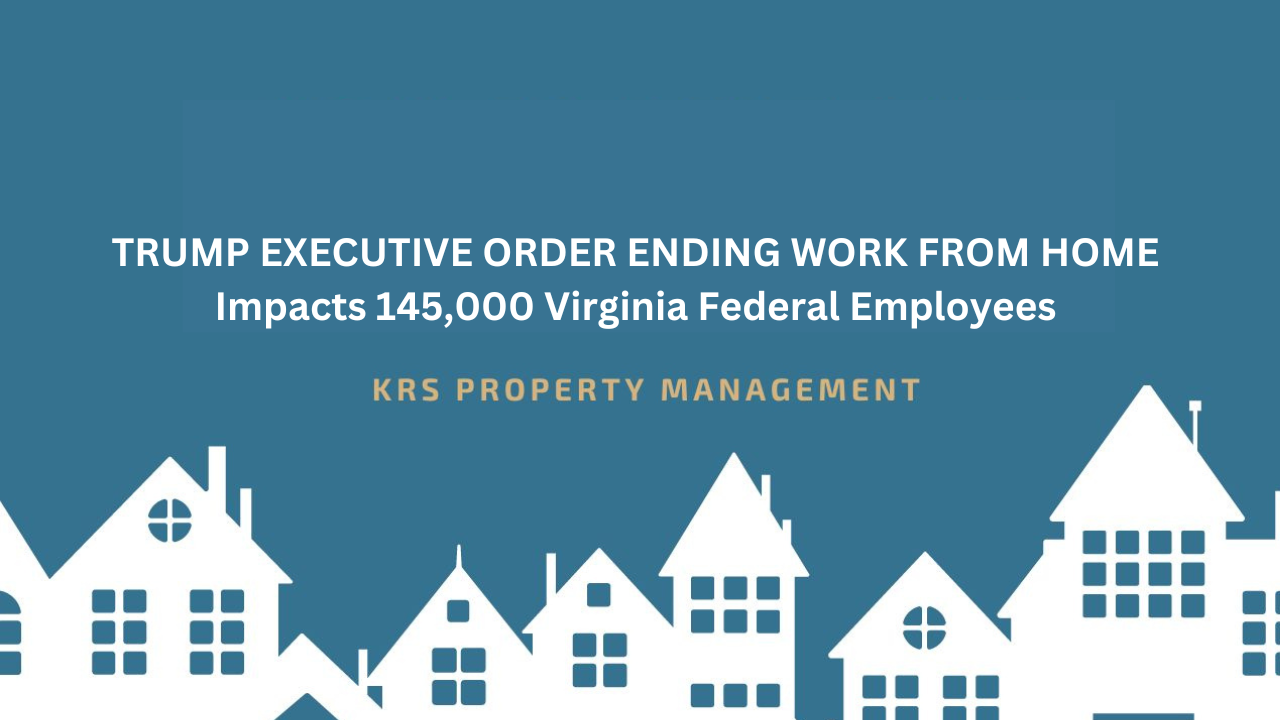
Nearly immediately our phone started ringing … following President Trump’s executive order that mandates federal employees working remotely must now return to their offices. The voiced concerns were from federal workers who moved to Central Virginia and the Tidewater regions during the pandemic and permitted to work from home by the Biden administration.
Predictably, the major worry centered around commitments to long-term residential leases and options to terminate if faced with a move closer to their offices. Of course, quality of family life and the time and money aspects of a long-distance commute peppered their expressed fears as well.
So, let’s take a deep breath and examine the facts.
First and foremost, the executive order to return to the office does not take effect immediately. President Trump’s mandate reads: “Heads of all departments and agencies in the executive branch of Government shall, as soon as practicable, take all necessary steps to terminate remote work arrangements and require employees to return to work in-person at their respective duty stations on a full-time basis, provided that the department and agency heads shall make exemptions they deem necessary,”.
Additionally, the president acknowledged potential legal barriers in union contracts with the added wording, “This memorandum shall be implemented consistent with applicable law.”
There are potential exemptions for some remote workers.
- Federal employees in the Richmond and Tidewater regions may qualify as living too far away for a regular commute. The executive order directs agencies to implement "phasing in the return of remote workers who are more than 50 miles from a current agency office, which may present unique challenges,". As appropriate, agencies may submit justifications to provide relocation benefits for employees who live more than 50 miles from their permanent duty stations.
- As further accommodation, agencies are directed to "determine permanent worksites" for full-time employees working remotely full-time including "the steps the agency will take to move these employees' duty stations to the most appropriate Federal office based on the employees' duties and job functions".
- Agency heads may recommend exemptions for workers that have a qualifying disability, medical condition or some “other compelling reason”.
- The January 20th executive order requested a response to the above delivered to the OMB and OPM no later than February 7.
An Examination of Intent
Of course, efficiency and productivity are paramount reasons for a return-to-office initiative. Governor Youngkin expressed this move as necessary because having people in the office is effective.
“You want to have a federal workforce that’s ready to go to work, that works hard, that is held accountable ….”.
That said, it’s no secret that the Trump administration is committed to aggressively reduce government spending via the Department of Government Efficiency (DOGE) with Elon Musk at the helm. Additionally, the stated objective is to drastically reduce the federal bureaucracy and increase the productivity of civil service workers.
That brings us to the recent announcement by President Trump offering millions of federal workers eight months of pay in return for their resignation. The buyout applies to nearly all federal employees … an obvious step to shrink the role of government employment and associated expenses. Excluded from the program are postal workers, members of the military, immigration officials, and some national security teams.
Workers have until February 6 to respond to be a participant in the “the deferred resignation” effort. Those who agree to resign will receive full pay through September of this year.
Back to intent for a moment. The Trump administration anticipates as much as ten percent of the eligible federal employees will accept the offer. About two million people are employed by the federal government. That means about 200,000 workers will resign with savings in government compensation of about $100 billion.
Takeaways
The highlighted text is what most Virginia federal employees reacted to from reading the executive order, “Heads of all departments and agencies in the executive branch of Government shall, as soon as practicable, take all necessary steps to terminate remote work arrangements and require employees to return to work in-person at their respective duty stations on a full-time basis, provided that the department and agency heads shall make exemptions they deem necessary”. Clearly, many if not most missed the fact that there is no call for immediate action and there is potential for individual exceptions to the order.
That prompted federal employee responses to our property management staff as to the impact on their residential rental status. Additionally, I’m aware of concern expressed by landlords, residential rental investors and multi-family construction executives on the impact of a federal employee return-to-work mandate.
In 2023, the stats are 145,000 statewide federal workers and around 2500 fully remote federal workers lived in the Richmond area and surrounding counties … with about 3,000 in the Tidewater region. Combined that is less than 4 percent of the total number of people employed by the federal government in Virginia. This leads me to a wait-and-see stance on what to expect in the impact of the return-to-office mandate. We won’t have long to wait given the February 7 deadline for agencies to recommend exemptions and February 6 as the latest response date for employees submitting their resignation.
Whether becoming a landlord was a choice or a result of circumstance, it doesn’t change the fact that managing any property comes with its challenges… and we want to help.
Give us a call or drop an email. We’ll respond promptly to relieve
your stress and help you evaluate your property management options
plus maximize your rental property return on investment.






